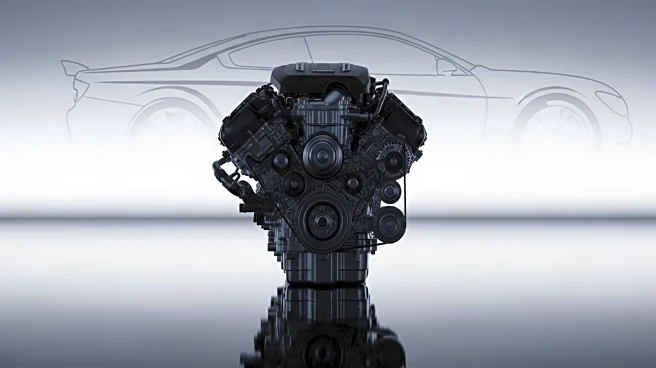What is the story about?
What's Happening?
General Motors LLC has received final approval for a $150 million settlement concerning alleged oil-consumption defects in several car models produced after February 10, 2011. The settlement resolves litigation initiated by three consumer classes who accused GM of unjust enrichment, breach of warranty, and fraudulent omission. Judge Edward M. Chen of the US District Court for the Northern District of California granted preliminary approval in June and finalized the agreement after no objections were raised by class members.
Why It's Important?
This settlement is a significant development for GM and the affected consumers, as it addresses longstanding grievances related to engine defects. The resolution of this litigation may enhance consumer trust in GM and its commitment to addressing product issues. For the automotive industry, this case underscores the importance of transparency and accountability in manufacturing practices. The settlement could also influence how other companies handle similar consumer complaints and legal challenges.
What's Next?
Following the settlement approval, GM will likely proceed with compensating affected consumers as per the agreement terms. The company may also implement measures to prevent similar issues in future models, potentially involving changes in manufacturing processes or quality control. Consumers involved in the class action will receive their compensation, and GM's actions may be closely monitored by industry analysts and consumer advocacy groups.
Beyond the Headlines
The settlement highlights broader implications for corporate responsibility and consumer rights. It raises questions about the ethical obligations of manufacturers to disclose product defects and the legal frameworks that protect consumers. This case may prompt discussions on improving regulatory oversight and ensuring that companies prioritize consumer safety and satisfaction.

















